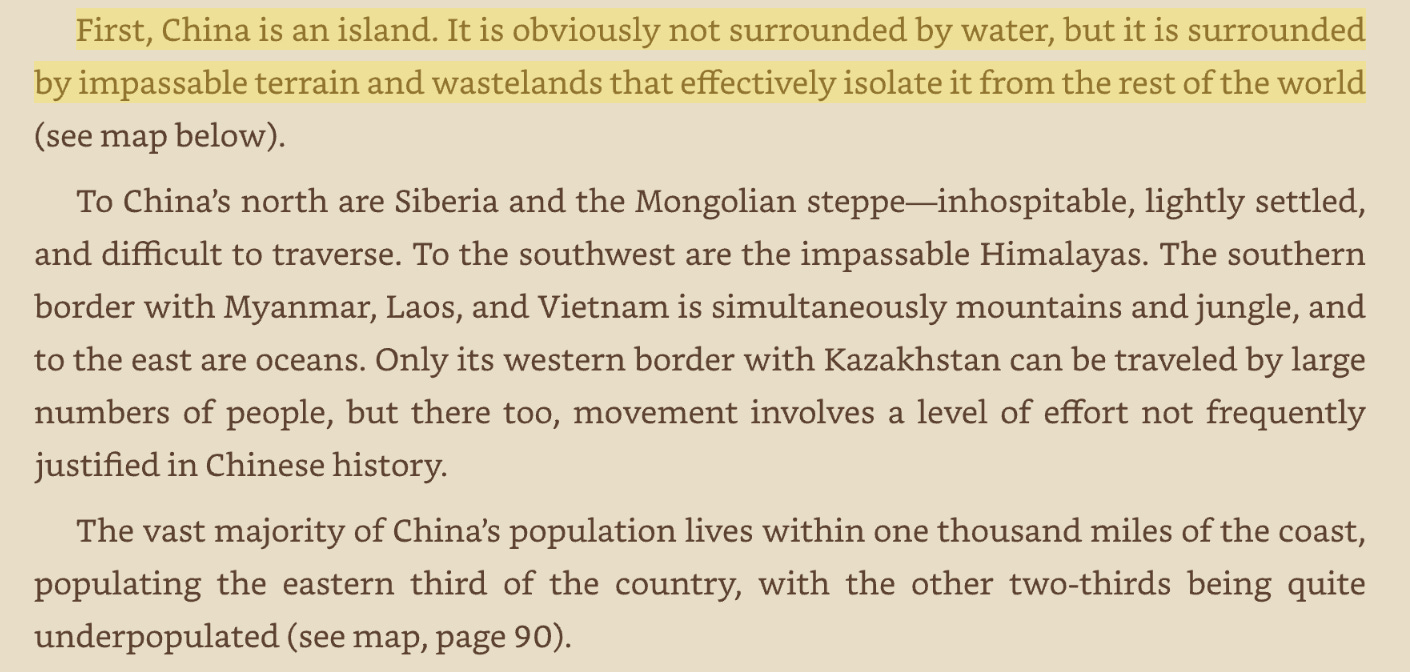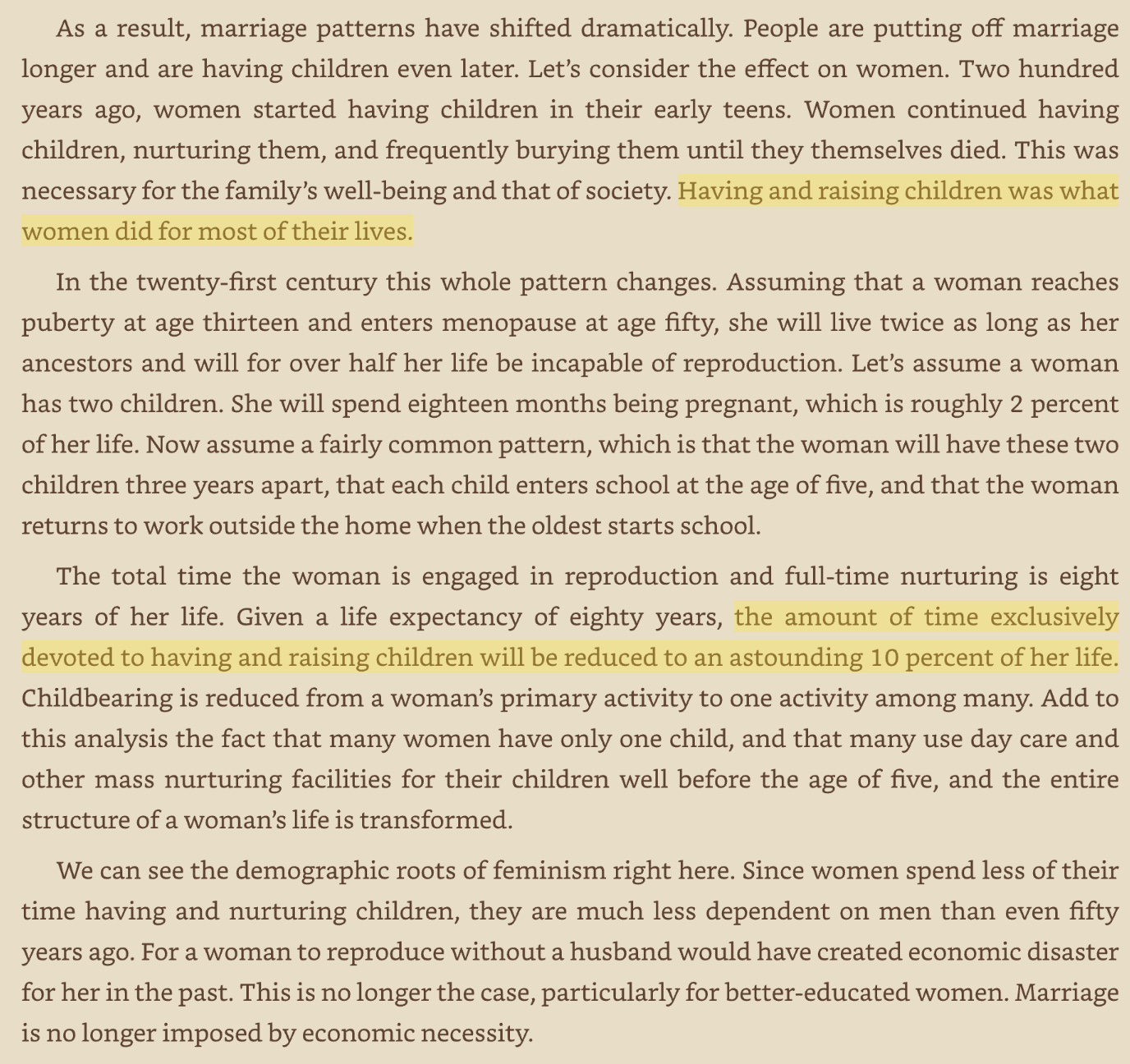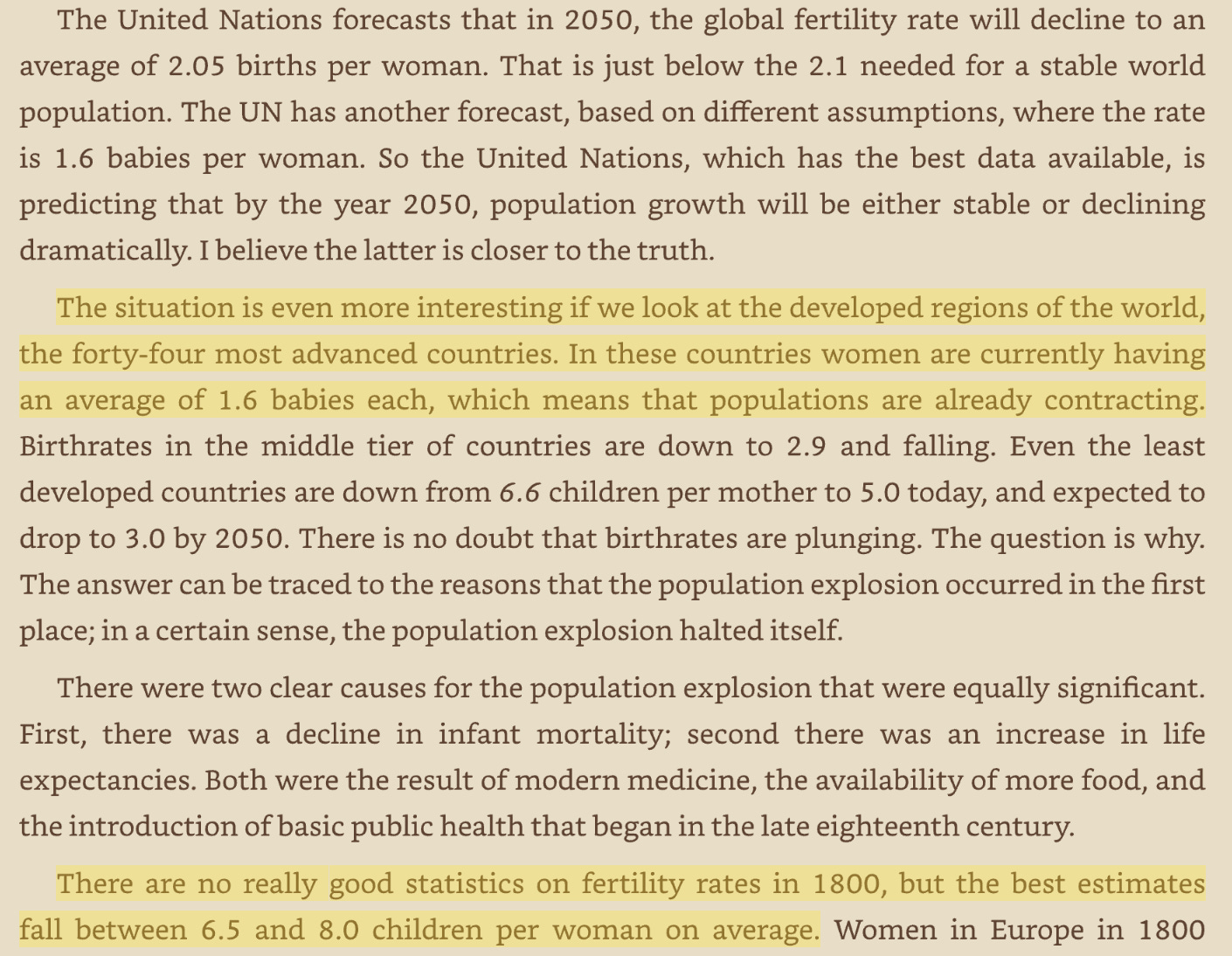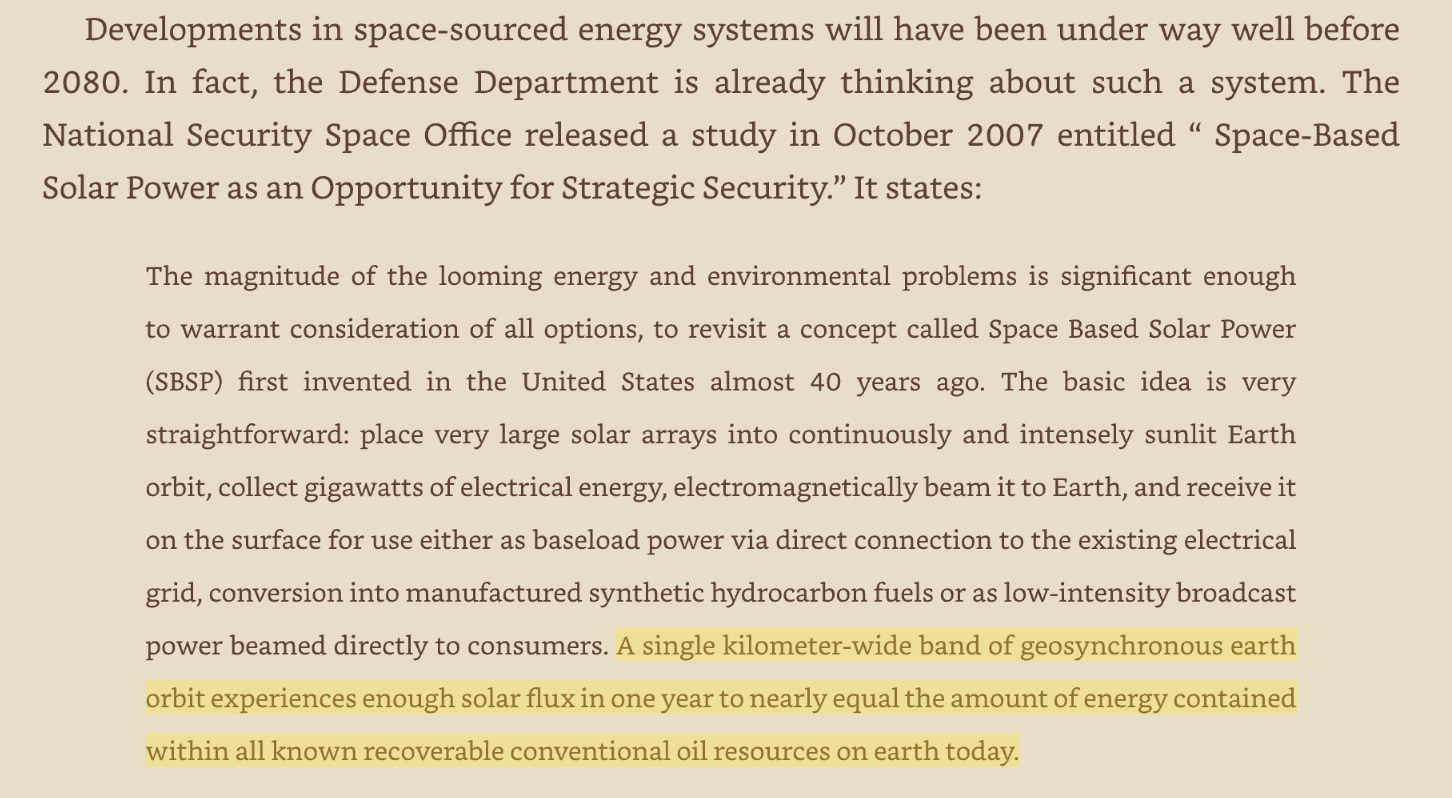Random learnings on geopolitics from "The Next 100 Years"
The Next 100 Years was a fascinating read. It would be absurd to expect it to be totally accurate... if I can’t predict if I’m going to be hungry in an hour, George Friedman certainly won’t be accurate with all geopolitical and military behavior over the next hundred years. In the 15-20 years since the book was written, he’s been startlingly right about a few things (at least to me) and very wrong about other things. His writing is also America-centric, to a possibly unobjective extent.
But all that said it’s a fun, wacky read, and I found it independently useful in understanding broad themes in how power shifts and collectives of people (countries, cultures) tend to behave. A lot of this might be elementary for people much better educated on the topic — but I found it interesting and thought others might too. Complex systems are hard, but fun to think about.
Here are a couple dozen things I found interesting from the book.
About the United States
Power swings between elites and populace every ~50 years in the US
This appears to be a recurring theme since the US became a country.
Founding Fathers (elites)
→ Power shifting to pioneers / farmers around ~1820 (Andrew Jackson elected, 1828)
→ Power shifting to wealthier class with gold Standard (Ulysses Grant elected, 1876)
→ Power back to the people post-Depression, with the New Deal (FDR elected, 1932)
→ Power back to capitalists and supply-side economics (Ronald Reagan elected, 1980)
→ Power back to populists, right on schedule; it’s been rising / brewing for ~10 years (as no doubt the prior shifts brewed for years prior to the catalyst presidential term). We’ll see whether the current Trump administration (elected 2024) is the culmination, or one soon after.
This (and the Strauss-Howe generational theory) reminds me of Isaac Asimov’s Foundation and psychometrics and — even if it only holds in the broad strokes painted above — it’s very spooky and cool.
One thing I haven’t yet been able to explain: why should the 50 year cycle also result in populism across the world? Is it simply due to globalization, that it doesn’t just result in correlation amongst just economies, but also emergent correlations in culture (in broad strokes, this is true) and politics?
Leaders have limited power; they are only vessels for the zeitgeist
Leaders are subject to their environment. Politicians are rarely free agents. While we tend to assume leaders of a country have an enormous amount of power. But most leaders — for good and bad — cannot cause massive macro events. They can only tap into into a latent sentiment within the population. No single person is a needle mover in understanding how the entire world apparatus behaves — though of course a charismatic or strong-willed leader can serve a catalyst, ushering in the looming change (or possibly accelerating it by a few years).
And so no single administration changes the direction of culture and geopolitics. FDR was a visionary leader, but the New Deal was predictable. This explains why Clinton continued Reagan’s policies around deregulation, or why Obama and Trump continued the Bush administration’s hawkish presence in the Middle-East.
(There are probably some exceptions; perhaps the Cuban Missile Crisis could have gone very wrong if Kennedy or Khrushchev had put a foot out of line? We’ll never know.)
The United States is apparently a child, but this is a very good thing
I just found this amusing.
He describes the US as an adolescent country — simultaneously overconfident and insecure. Sounds about right. The US is simply “new” to its power (<250 years is a young country in historical terms!), and hasn’t learned how to use it yet; it’s clumsy, like an awkward teenager. The Vietnam war and war in the the ME were hugely consequential and devastating locally; but a massive power learning its own strength is sort of like an elephant accidentally squishing a human being by sitting down without looking.
The military might is economic might, the navy is critical to power
Most of us don't travel by boat a lot. So it's really easy to forget the extent to which global trade operates almost entirely based on shipping. Being able to control sea routes and trade lanes is critical to ensuring a good economic order and world order, and the only way to do this is by having serious naval might, with which to police those routes. This has been dominated by the US over the last several decades.
An interesting corollary: the nature of Eurasia is that it’s susceptible to constant wars — countries there frequently get devastated as a result. On the other hand, the US intervenes when it’s advantageous to its interests, but is itself really hard to invade. This appears to be why the US always ends up net ahead, after each global conflict.
This means a presence on two oceans is a massive advantage
This was one of my most eye-opening moments in the book. It naturally flows that if naval power is important, being on two major oceans is a huge edge.
The cost of maintaining carrier battle groups in the Persian Gulf is a greater outlay than the total defense budgets of most countries.
That’s insane. As a reminder, the US has 11 carrier groups, with 2-4 carrier groups active at any given time, and a couple on standby (just, you know, casually).
The US “Grand Strategy”
One of the things I like about the book is that it often lays out a sequence of logically-coherent points; at the end of which the ultimate conclusion is sort of self-evident (or at the very least, it makes an outlandish conclusion very plausible). This is what he argues the US’ grand strategy is (in ascending order of ambition and difficulty):
The complete domination of North America by the US Army
The elimination of any threat to the US by any power in the Western Hemisphere
Complete control of the maritime approaches to the US by the Navy in order to preclude any possibility of invasion
Complete domination of the world’s oceans to further secure US physical safety and guarantee control over the international trading system
The prevention of any other nation from challenging US global naval power
I mean, when you put it like that…
U.S.A.! U.S.A.! U.S.A.!
In all seriousness, the US knocked out #1 by 1850, #2 by 1900, and #3 by the back half of the 20th century (though this is complicated with the rise of nuclear weapons which don’t require an “invasion” to win). #4 was certainly true by around 2000. This explains why the core of US geopolitical strategy over the last 50 years is focused on #5, sometimes through direct intervention, and sometimes through proxy wars.
Conversely, it is the natural order of things For every other country or groups of other countries to band together to pose a sufficient resistance or bulwark to use US hegemonic power (e.g., BRICS)
Military action as a tool of disruption, not victory
Most of us probably have a fairly conventional way of thinking about war as having “winners” and “losers.” The framing below was instructive: if you’re a superpower, your goal isn’t to beat someone, it’s only to shake things up so that no real threat can emerge.
About China and Russia
Is the red sun a false dawn?
This is probably Friedman’s most incorrect take. He calls China a “paper tiger,” but by all evidence since, they’ve only continued to rise in power. I think this is a flat-out incorrect call.
He does have some interesting observations.
First, that China is an “island” which keeps them from being able to exert the same geopolitical influence easily. He discusses this in both a geographical and a strategic sense.
He also identifies their recent economic crunch, early — especially due to government intervention and policy. An interesting parallel he draws is to Japan: artificially low interest rates and market manipulation due to government intervention in Japan led to a massive debt crisis and then stagflation starting in the 1990s. The same thing has been happening in China in the early 21st century.
But the big difference that I think he's overlooking is China's sure willingness to take on short-term pain and impose its will on the economy and country in order to play the long game:
Allowing Evergrande to default ($300B in liabilities) → plummeting home sales (-20%) and layoffs in real estate
Clampdown on the tech sector (Ant Group, Alibaba, Didi, ed-tech ban) which led to $1T+ in market value wiped off and a sharp pullback from foreign investors
Being okay with youth unemployment (>20% in 2023)
These are measures that Japan (and certainly not the US) would never be willing to take.
The same also translates to a single-minded commitment to growth and aggregate (not individual, and certainly not communist) prosperity. This is sustained and obvious in the speed at which China has built up its technological, military (about to ship its third aircraft carrier), and economic power — even if it means a lot of pain for a large number of people, including substantial loss of life (e.g., limited safety regulations in infrastructure projects means they get built a lot faster).
Geographic buffers dictate conflict way more than I previously realized
How far do you think St. Petersburg are from NATO territory? I might have guessed 500 miles.
Try 70.
This is how Friedman was able to predict that Russia would invade Crimea six years before they did so in 2014: they have little to no geographic buffer.
St. Petersburg is within spitting distance of both Estonia and Finland. More importantly, Moscow is <500 miles from NATO (Estonia). And if Ukraine were to join NATO, that number shrinks to <300 miles.
None of this is to justify an invasion of Ukraine. Putin’s a megalomaniac, and I can’t believe we’re letting Russia slide. But set in this context, Russia's actions are easy to fathom, even if they're not defensible. Ukraine making noise about joining NATO backed Russia into a corner to protect its own interests.
About demographics
More technology results in fewer children
I love how matter-of-fact he is in discussing all this. It’s refreshing because he’s not expressing value judgments. When stepping back to discuss things that happened over the course of centuries, it's very clear, he’s not saying something is good or bad, but simply that it is.
This is a killer quote: “Children went from being producers of wealth to its most conspicuous form of consumption.”
This has directly played a role in rise of feminism
All of this is fairly obvious — globalization and industrialization have all led to development, which leads to female emancipation. But it’s fascinating to see the chain of logic and events laid out so plainly:
An interesting corollary is that one could draw a straight line from vaccination to feminism: vaccination → survival rate of children is higher → then women need to have fewer children to get to the “equilibrium” number of children the family should have → then women spend less time in child birthing and nurturing → then women are able to work themselves and become economically independent.
The role of demographics in shaping economic and geopolitical power
While this has risen in our dialogue significantly, the coming demographic collapse was less-discussed back in 2008. Friedman nails it here:
The one thing I think Friedman is overlooking, though, is the role of technology and automation, especially with AI. Historically, labor was the only way to increase “capacity,” and that certainly took a backseat starting with the Industrial Revolution, we're about to see that take into a whole new level. To be fair, he does acknowledge this later in the book, and estimates the impact will land around 2060 with advanced robotics… but as we’ve seen since, that’s exploded in a way no-one can predict.
That said — there’s a very strong argument to be made that relative power between countries is very likely to be shaped by population trends. A country that is 100M+ people and stable or growing (either through birth or immigration) is a lot more likely to be dynamic than a country at 200M people but declining to 160-180M in 20 years based on a TFR of 1.6. At least, conceptually? I guess we’ll see how culture evolves.
This also poses a strong argument in the immigration argument that is currently raging in the US. If our population is decreasing and population is critical to economic influence and geopolitical strength… then supplementing the natural decrease in population with people from abroad — particularly the most skilled people from abroad — is not just a very good thing but a moral imperative for the future strength of the United States. And in fact, because of our identity as a culture of explorers, pioneers, and immigrants… the US is probably the only major power (or even the only country >100 million people) that can improve demographics via immigration, without diluting its identity.
This is not to diminish the risk of straining the social fabric, if there is a large influx of immigrants in a short span of time. If we prioritize the immigration of highly skilled and pro-social immigrants, and prioritize their assimilation and integration into American society… it makes us strictly better off as a country. Not just in a vacuum, but especially in the face of falling fertility rates.
The impact of population trends on real estate
Most countries and cultures assume that real estate prices will always go up. But is this still true in an environment where populations are stagnant or even decreasing? In fact: Japan and South Korea are early case studies in real estate prices flattening due to shrinking populations.
Final notes
Bring on the Dyson Sphere
“A single kilometer-wide band of geosynchronous earth orbit experiences enough solar flux in one year to nearly equal the amount of energy contained within all known recoverable conventional oil resources on earth today.” — good god, what?
Friedman spends a good 1/3 of the book discussing conflict in space, harnessing space-based energy, and moon bases (not kidding).
When he wrote this in 2007-08, SpaceX was a fledgeling company that had never launched a rocket; and in fact it seemed that space as a frontier was fading as a priority for the world as a whole.
The expansion of human attention to space is something that would have been much more contrarian at the time — less than 20 years after he wrote the book, this trend seems to be something Friedman got very right, and happening much earlier than he predicted. But to be fair to Friedman, I don't think anyone could have predicted the way in which SpaceX would be able to revolutionize launches, or the rate at which AI has exploded in the last five years.
This is a common theme in the book: Friedman underestimates the pace of technological development, and it appears he overestimates the pace of geopolitical developments. For example, he thought that Russian aggression would rise and fall over the course of the 2010s (which, as we know, is still playing out in 2025).
Underestimating American bureaucracy
He lists the major tendencies that influence human action as geopolitics, technology, demographics, culture, and the military. I think there’s a big sixth one, and that’s the bureaucracy and obstructionism that rises in late-stage societies. I suppose he would argue that the US is an adolescent, but if there were ever to be a counter to that argument, it’s how little we seem to be able to get done with infrastructure, (de)regulation, and fiscal prudence.
This might be the downside of one of the US system’s greatest strengths: checks and balances. It was designed to check the power of a dictator, but when an action can be blocked from several avenues, the safeguards and failsafes can (and will) be hijacked to limit any change, because people are typically afraid of change.
The other reason this might be happening so soon is precisely because things move a lot faster now. The pace of change (and life) is a lot different than a few centuries ago.
Roman hegemony took 500 years to develop, reigned for 500 years, and fell over 200 years
British hegemony took 150 years to develop, reigned for 200 years, and fell in <50 years
American hegemony took ~50 years to develop (1990 - 1950), and ~75 years of joint or solo hegemony.
It’s not crazy to think this could unravel over the course of a couple of decades. There’s an argument that it might already be happening. This calls for, in the words of Mad-Eye Moody, constant vigilance.
All in all — this is one of two books that has significantly changed how I think about complex systems in society in the last few years (the other is What's Our Problem by the fantastic Tim Urban). It was a fascinating read — especially if we think of it as “plausible fiction” rather than trying to hold it to a predictive standard.
















Landed here from your weighing machine (really cool and something you should build on to see how the wm does as a predictor over time for select stocks). This post is really good and I appreciate the deep dive since it saves me from reading the book. On the issue of the 50 year cycles and populism, I am not sure the dichotomy of elites vs the populace makes any material difference because I would argue it is always the elites of some kind mobilizing different forces in society (in the name of the "populace" or "paternalistic elites/traditions/capitalism"). While there are lots of changes that come with the particular coalition of the elites, I question the examples that claim to describe a meaningful shift in 50 year cycles that is different from 4 year or 8 year administration cycles.